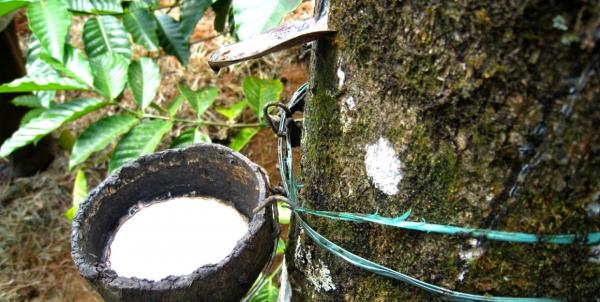Main research areas
The main research topics currently being addressed combine the priorities of the Thai government with those of CIRAD.
- Understanding the relations existing between agriculture and the environment, and between human societies and nature, for the sustainable management of rural areas. This mostly covers the field of rubber growing.
- Preparing for and managing infectious health risks taking an integrated approach (One Health).
- Inventing ecologically intensive agriculture to feed people.
Key figures
-
5
expatriate researchers
-
8
current projects
-
30
missions per year
-
2
PhD students supervised
Franco-Thai InterRisk international Master’s degree
Assessment and management of health risks at the human-animal-ecosystem interface
This Master’s degree has been developed as part of the One Health approach by CIRAD in conjunction with Kasetsart University (Thailand) and the University of Toulouse. Forty students have been trained since 2016 and many now hold positions in international organizations (ILRI, FAO, WOAH), or are in the process of obtaining their PhD (City University Hong Kong, University of Montpellier, Kasetsart University). With backing from MUSE (Montpellier University of Excellence), this Master’s programme should soon evolve and potentially involve other partners outside Southeast Asia, such as École Inter-États des Sciences et Médecine Vétérinaires (Inter-State School for Veterinary Sciences and Medicine) in Dakar at Cheikh Anta Diop University (Senegal).
Find out more: InterRisk Master’s website
The natural rubber value chain in Southeast Asia
Preparedness for the possible effects of climate change and agricultural labour shortages in the Southeast Asian rubber sector
The FORSEA project is being implemented in cooperation with a consortium of partners in Thailand, Cambodia and Vietnam.
The Agence française de développement (AFD) has awarded CIRAD a 1.5 million-euro grant for the FORSEA regional project (FOrecasting impacts of climate change and workforce availability on natural Rubber commodity chain in South-East Asia). The projet aims to forecast the possible effects of climate change and the increasing scarcity of agricultural labour on the rubber sector in Southeast Asia. It will be implemented with a consortium of partners in Thailand, Cambodia and Vietnam.
Cooperation and partnership
Platforms in partnership
How can rubber smallholders adapt to global challenges?
How can we manage the emerging health risks at the interface between animals, humans and their environments?
A network aimed at producing more while preserving resources.
Main partners
- Kasetsart University (KU)
- The Thailand International Cooperation Agency (TICA)
- Prince of Songkla University (PSU)
- Rubber Research Institute of Thailand (RRIT)
- Rubber Authority of Thailand (RAoT)
- Michelin Thailand
- World Organisation of Animal Health (OMSA/WOAH, funded as OIE) and the SubRegional Representation for South-East Asia (SRR-SEA) in Bangkok
- FAO Regional Office for Asia and the Pacific
CIRAD is also working with
- The AIT, Asian Institute of Technology
- The Department of Livestock Development (DLD, Ministry of Agriculture and Cooperatives)
- The National Science and Technology Development Agency (NSTDA)
- Chulalongkorn university
- Khon Kaen university
- Mahidol university

























-GuylaineCros00012319.jpg)




